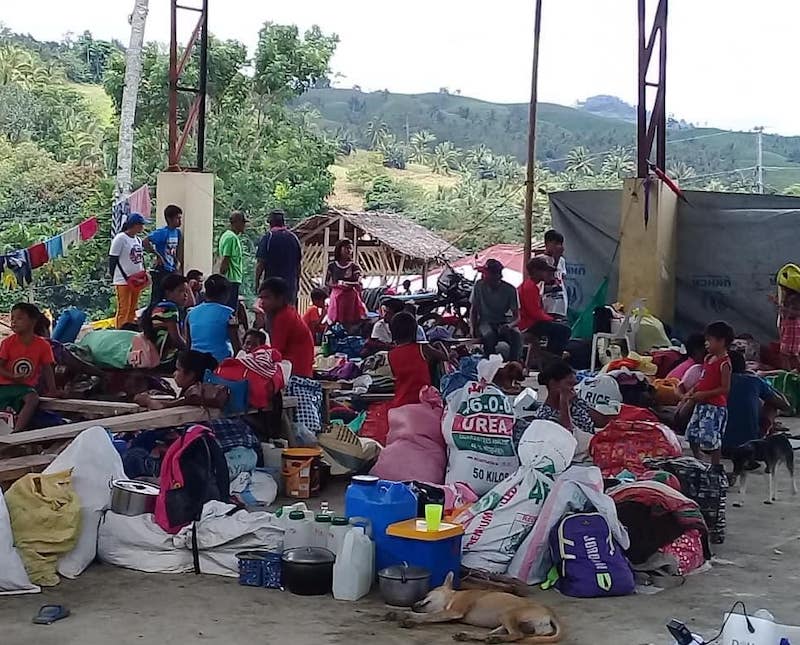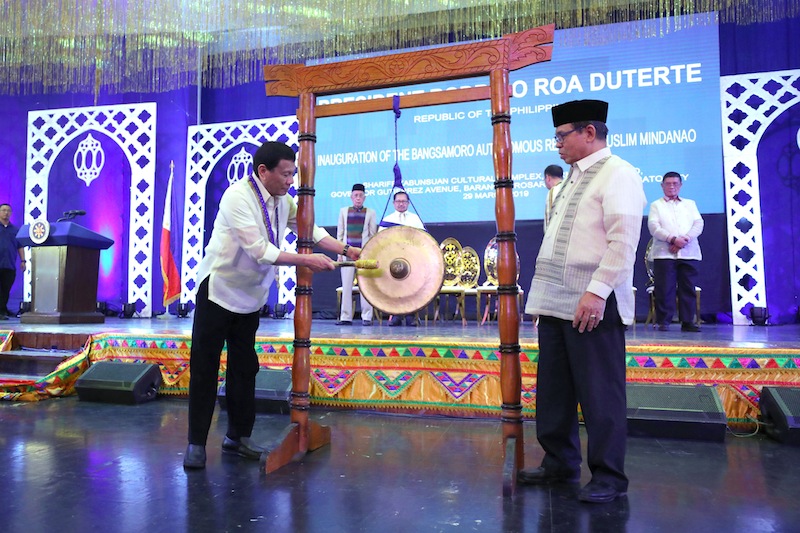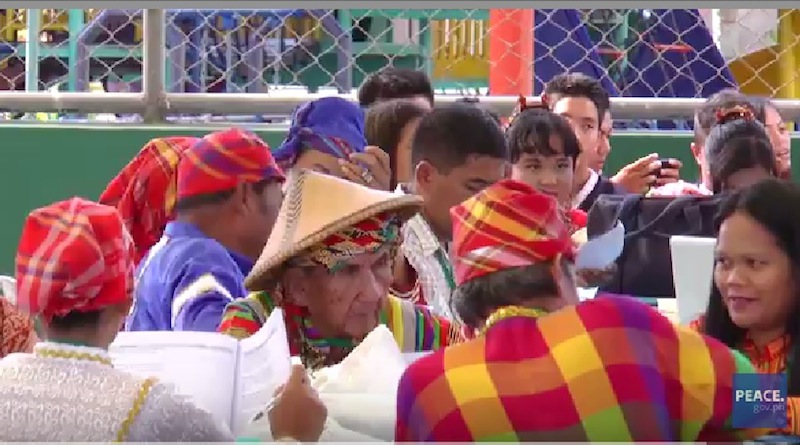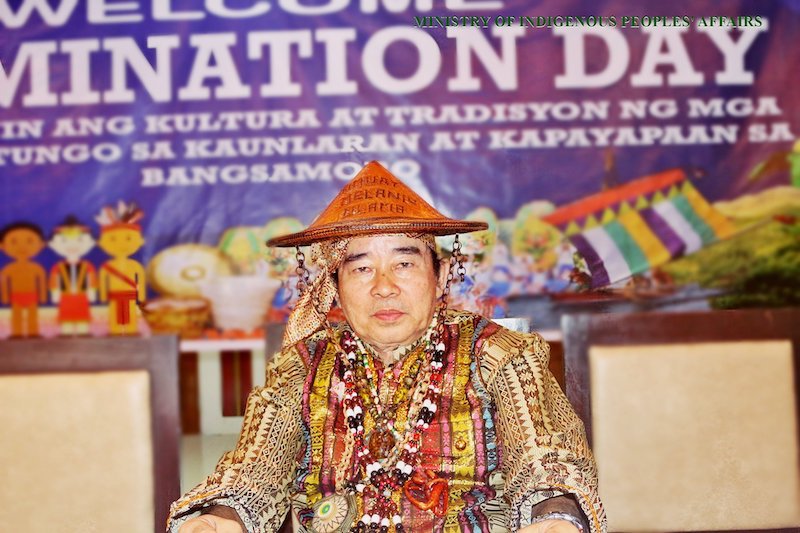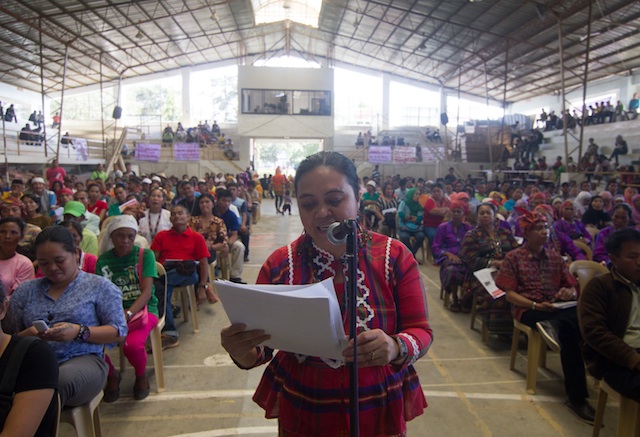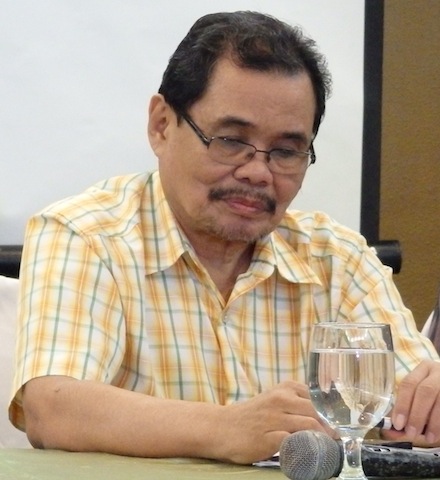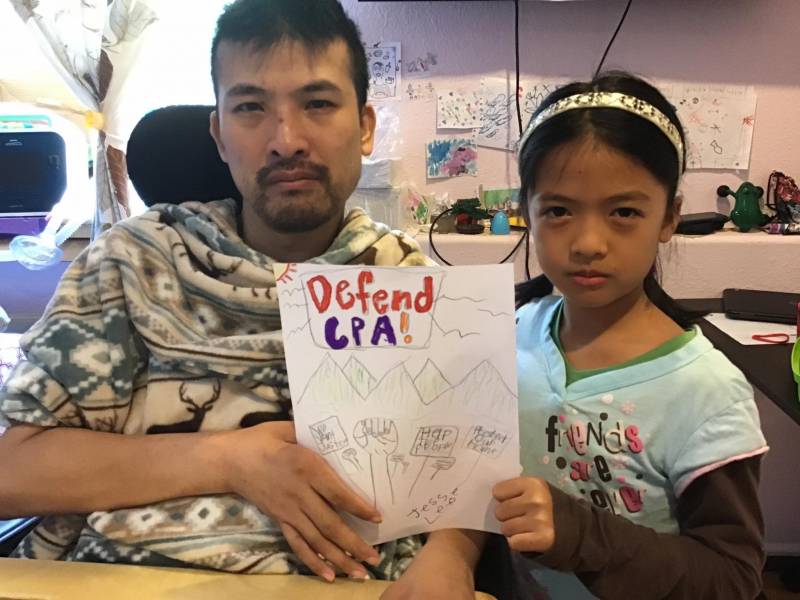
San Francisco native Brandon and his daughter Jesse Jane B. Lee. (Courtesy of SFCHRP )
It's been a year since San Francisco native Brandon Lee was shot in the Philippines in a suspected extrajudicial assassination attempt by the Philippine government for his activism in defense of indigenous land. Despite repeated calls by family and supporters in the Bay Area and abroad, pleas for an investigation into the shooting have yet to be answered.
Still, amid international concern over the sweeping authority of a new so-called anti-terrorism law in the Philippines, Lee, an environmental activist from the Sunset District, says he believes it's his duty to continue to advocate against human rights abuses in the Philippines.
"I am believed to be the first American targeted by President [Rodrigo] Duterte's counter-insurgency plan for defending human rights and promoting indigenous people's rights as a community journalist and environmentalist," said Lee at a press conference on Thursday. "However, I can be considered one of the fortunate ones who have survived, because I could've easily been one of the 30,000 fathers, sons, mothers and children who have been killed brutally, mercilessly, with no due process whatsoever."
"That is why despite my permanent injuries, and physical hardship, I believe it is my duty to continue to lend my voice when and where I can," he said.
At the Thursday press conference, Lee called for the end to U.S. military and financial aid to the Philippines through the Philippine Human Rights Act. In April, the U.S. granted $5.3 million in assistance to the Philippines in its fight against COVID-19, but activists fear the Duterte administration has instead used the pandemic as an opportunity to become further militarized.
Last year, the San Francisco Board of Supervisors passed a resolution calling for the suspension of U.S. aid to the Duterte administration until Lee's case was solved "and the perpetrators are brought to justice."
"It's our duty and responsibility to stop our tax dollars to support Duterte," Lee said.
Along with members of the local Filipino American community, Lee also spoke out against the new Anti-Terror Bill in the Philippines, which human rights groups say gives the Duterte administration sweeping new powers to define terrorism, persecute political opponents and suppress free speech.
In the Philippines, Lee worked as an advocate with the Cordillera Peoples Alliance and was a journalist with The Northern Dispatch in the Philippines, where he advocated against large-scale mining projects on indigenous land.
Lee began his activism as a student at San Francisco State University before moving to the Philippines in 2010. He warned repeatedly of intimidation by the Armed Forces of the Philippines to family and friends back home in the Bay Area.
He was shot outside his home in August before being airlifted back to San Francisco in October, where he continues his search for affordable housing that is also Americans with Disability Act (ADA) accessible.
Still, Lee says the intimidation by the Philippine government continues.
"The social media attacks against me did not stop after being airlifted to safety," he said.
Lee's supporters say the San Francisco Board of Supervisors and the Philippine House and Senate have passed resolutions calling for an independent investigation into Lee's shooting. They also say they've been in communication with the offices of House Speaker Nancy Pelosi and Sen. Kamala Harris.
"There haven’t been any updates from any administration – either our government administration or the Philippine administration as to the investigation around the attempted assassination," said Sadie Stone, a reverend with Bethany United Methodist Church and a supporter of Lee.
California Rep. Rob Bonta, D-Oakland, the first Filipino American elected to the state Legislature, said the Bay Area's show of support for Lee's continued recovery makes him proud of the Filipino American community's commitment to fight against injustice wherever it is.
"We can't be deterred, and Brandon reminds us of that," Bonta said.
Still, amid international concern over the sweeping authority of a new so-called anti-terrorism law in the Philippines, Lee, an environmental activist from the Sunset District, says he believes it's his duty to continue to advocate against human rights abuses in the Philippines.
"I am believed to be the first American targeted by President [Rodrigo] Duterte's counter-insurgency plan for defending human rights and promoting indigenous people's rights as a community journalist and environmentalist," said Lee at a press conference on Thursday. "However, I can be considered one of the fortunate ones who have survived, because I could've easily been one of the 30,000 fathers, sons, mothers and children who have been killed brutally, mercilessly, with no due process whatsoever."
"That is why despite my permanent injuries, and physical hardship, I believe it is my duty to continue to lend my voice when and where I can," he said.
At the Thursday press conference, Lee called for the end to U.S. military and financial aid to the Philippines through the Philippine Human Rights Act. In April, the U.S. granted $5.3 million in assistance to the Philippines in its fight against COVID-19, but activists fear the Duterte administration has instead used the pandemic as an opportunity to become further militarized.
Last year, the San Francisco Board of Supervisors passed a resolution calling for the suspension of U.S. aid to the Duterte administration until Lee's case was solved "and the perpetrators are brought to justice."
"It's our duty and responsibility to stop our tax dollars to support Duterte," Lee said.
Along with members of the local Filipino American community, Lee also spoke out against the new Anti-Terror Bill in the Philippines, which human rights groups say gives the Duterte administration sweeping new powers to define terrorism, persecute political opponents and suppress free speech.
In the Philippines, Lee worked as an advocate with the Cordillera Peoples Alliance and was a journalist with The Northern Dispatch in the Philippines, where he advocated against large-scale mining projects on indigenous land.
Lee began his activism as a student at San Francisco State University before moving to the Philippines in 2010. He warned repeatedly of intimidation by the Armed Forces of the Philippines to family and friends back home in the Bay Area.
He was shot outside his home in August before being airlifted back to San Francisco in October, where he continues his search for affordable housing that is also Americans with Disability Act (ADA) accessible.
Still, Lee says the intimidation by the Philippine government continues.
"The social media attacks against me did not stop after being airlifted to safety," he said.
Lee's supporters say the San Francisco Board of Supervisors and the Philippine House and Senate have passed resolutions calling for an independent investigation into Lee's shooting. They also say they've been in communication with the offices of House Speaker Nancy Pelosi and Sen. Kamala Harris.
"There haven’t been any updates from any administration – either our government administration or the Philippine administration as to the investigation around the attempted assassination," said Sadie Stone, a reverend with Bethany United Methodist Church and a supporter of Lee.
California Rep. Rob Bonta, D-Oakland, the first Filipino American elected to the state Legislature, said the Bay Area's show of support for Lee's continued recovery makes him proud of the Filipino American community's commitment to fight against injustice wherever it is.
"We can't be deterred, and Brandon reminds us of that," Bonta said.

